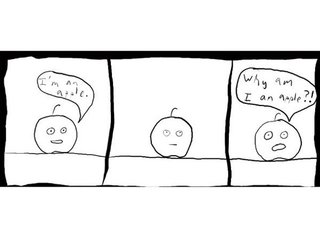Pelvital raises $2.32M to commercialize its urinary incontinence device
Flyte delivers mechanotherapy transvaginally to the pelvic floor
Read more...
So, we all knew it was coming, but it still kind of feels like all the business rhetoric on how to create and run a successful business (i.e. work hard, but have fun!) has failed. Groupon CEO Andrew Mason announced his departure Thursday evening, a day after the company announced dismal fourth quarter earnings. Groupon shares were up all of 6.6% on word of the news, after plunging more than 20% Thursday.
“After four and a half intense and wonderful years as CEO of Groupon, I've decided that I'd like to spend more time with my family. Just kidding - I was fired today,” wrote Mason. “I'm OK with having failed at this part of the journey. If Groupon was Battletoads, it would be like I made it all the way to the Terra Tubes without dying on my first ever play through.”
Groupon has had a rough ride over the last year and a half, and it was kind of sad to see Mason the goofy manchild grow up into a serious, suit-and-glasses wearing business man. It’s a relief to see his nerdburger humor again.
But someone was going to have to take the fall. Groupon has been flailing for too long—it was flailing before it went public, starting with controversial business metrics that puffed up the company’s performance to be waaay better than it actually was. Once Groupon made its public debut, it was all downhill from there. Shares are now trading at approximately one quarter of Groupon’s listing price, and the market cap has plummeted 81% in the last year.
Every quarter has been a bad quarter for Groupon, but Wednesday’s earnings report was the final nail in the coffin for Mason. While gross billings were up 23.5% to $1.52 billion, Groupon posted an even higher loss—$81 million, or -$0.12 a share, compared to $65.4 million in Q4 2011. This came as a big surprise to Wall Street, which was expecting a profit of $0.03 a share.
The company pinned the blame on issues related to its overexpansion, but everyone had a theory. Some analysts blamed Groupon’s reliance on its direct sales channel, Groupon Goods, which earns smaller profit margins than the coupon business. Others argued that the loss was the result of Groupon’s decision to begin accepting lower take rates in an attempt to attract higher quality merchants.
There are a lot of problems with Groupon. As Mason writes: “My biggest regrets are the moments that I let a lack of data override my intuition on what's best for our customers.”
The problem is that Groupon assumed that its customer is the subscriber, when in fact, it's the merchant. Data would have shown that merchants were not happy.
It doesn’t help that Groupon began casting about aimlessly for different revenue streams to boost its shrinking coupon business—rather than putting its energy into figuring out how to make the coupon business work. It has relied increasingly on Groupon Goods to carry the company, and over the last few months, the company has aimed to become the “operating system” of local businesses. It was a worthy effort, since the problem was that merchants weren’t getting as much out of Groupon as subscribers, but it missed the point.
But it's not just Groupon. The daily deals industry as a whole has been struggling. Edison Research noted in an April report that a full 80% of daily deals subscribers said they use services like Groupon and LivingSocial at about the same rate or less than when they first joined.
IbisWorld estimates that by 2017, revenue growth for the daily deals industry will drop 7.2% a year. By comparison, daily deals revenues grew by 1602.2% in 2010.
Back in October, Amazon more or less outed LivingSocial as a big-time money loser. As a partial owner of the daily deals company, Amazon found itself on the hook for $169 million, or 37 cents a share. All told, LivingSocial’s net loss totaled $566 million while revenue was only $124 million.
LivingSocial CEO Tim O’Shaughnessy explained in a memo to employees that the losses—while enormous—are mostly related to non-cash items as LivingSocial had to revalue some of the companies it’s acquired.
So was Mason's ouster the result of his own inadequacy or was it inevitable as the daily deals industry tries to find its sea legs? Both. God speed, Andrew Mason.
Image source: businessinsider.com
Flyte delivers mechanotherapy transvaginally to the pelvic floor
Read more...The country will need an additional 203,200 RNs each year until 2031 to fill staffing shortages
Read more...This will allow DrFirst to accelerate its growth in the specialty medication space
Read more...


